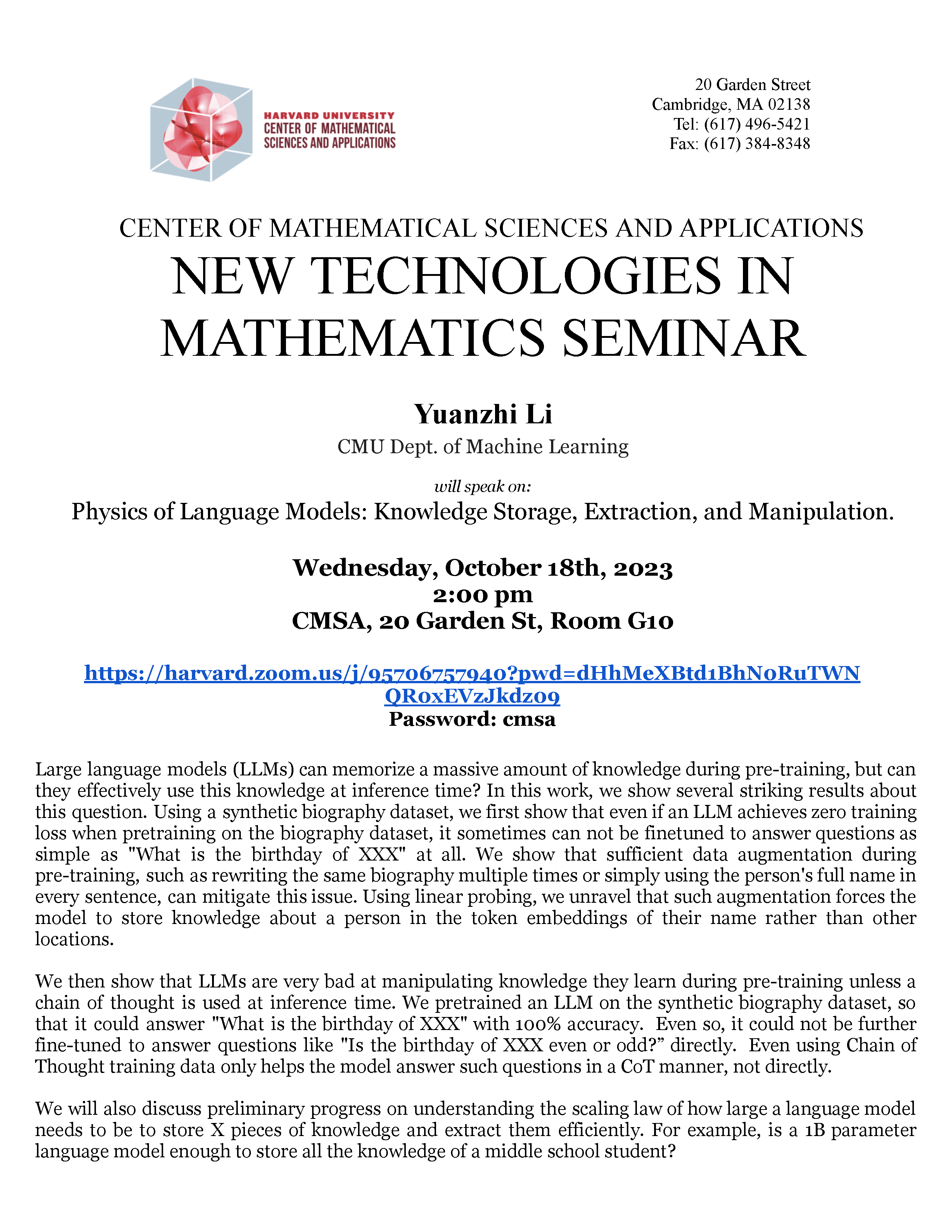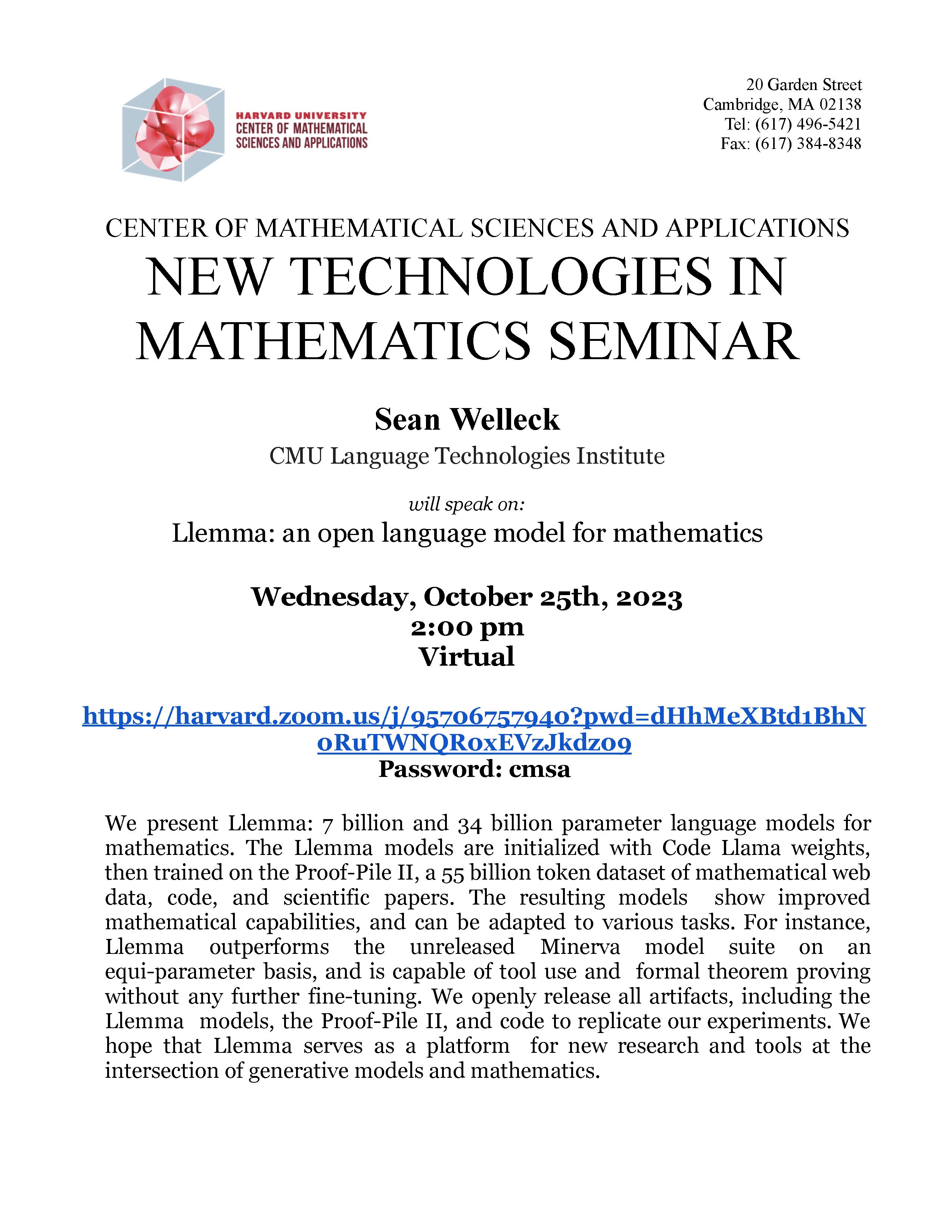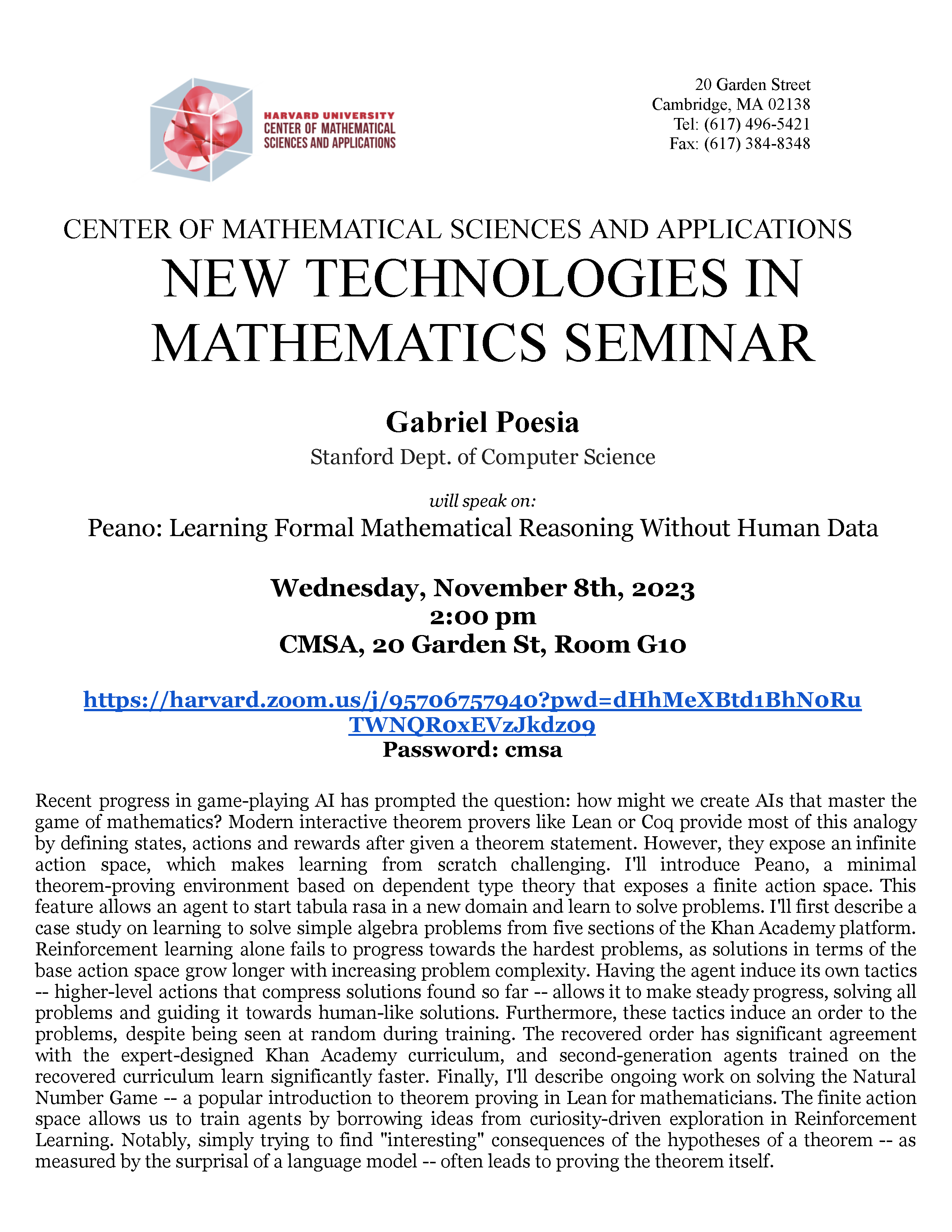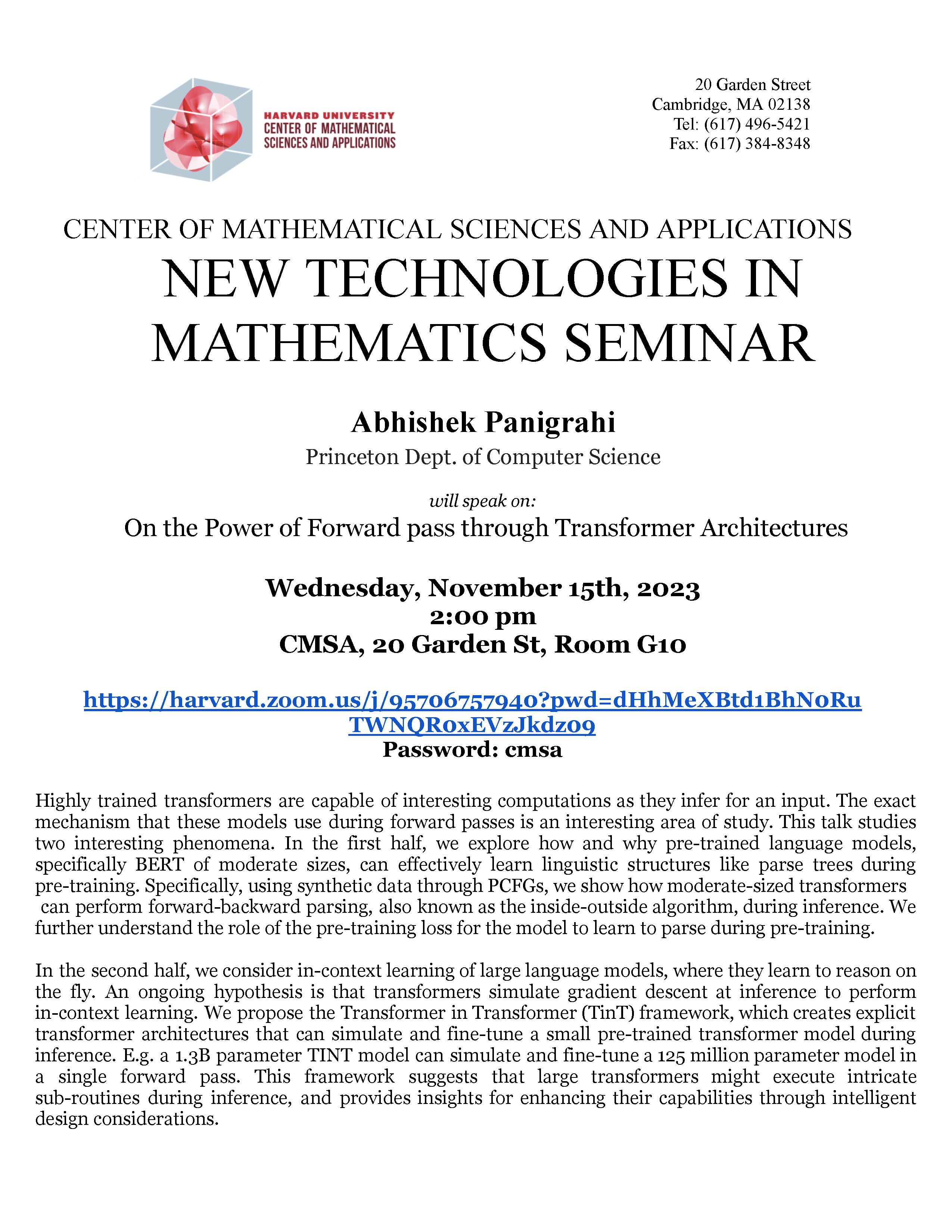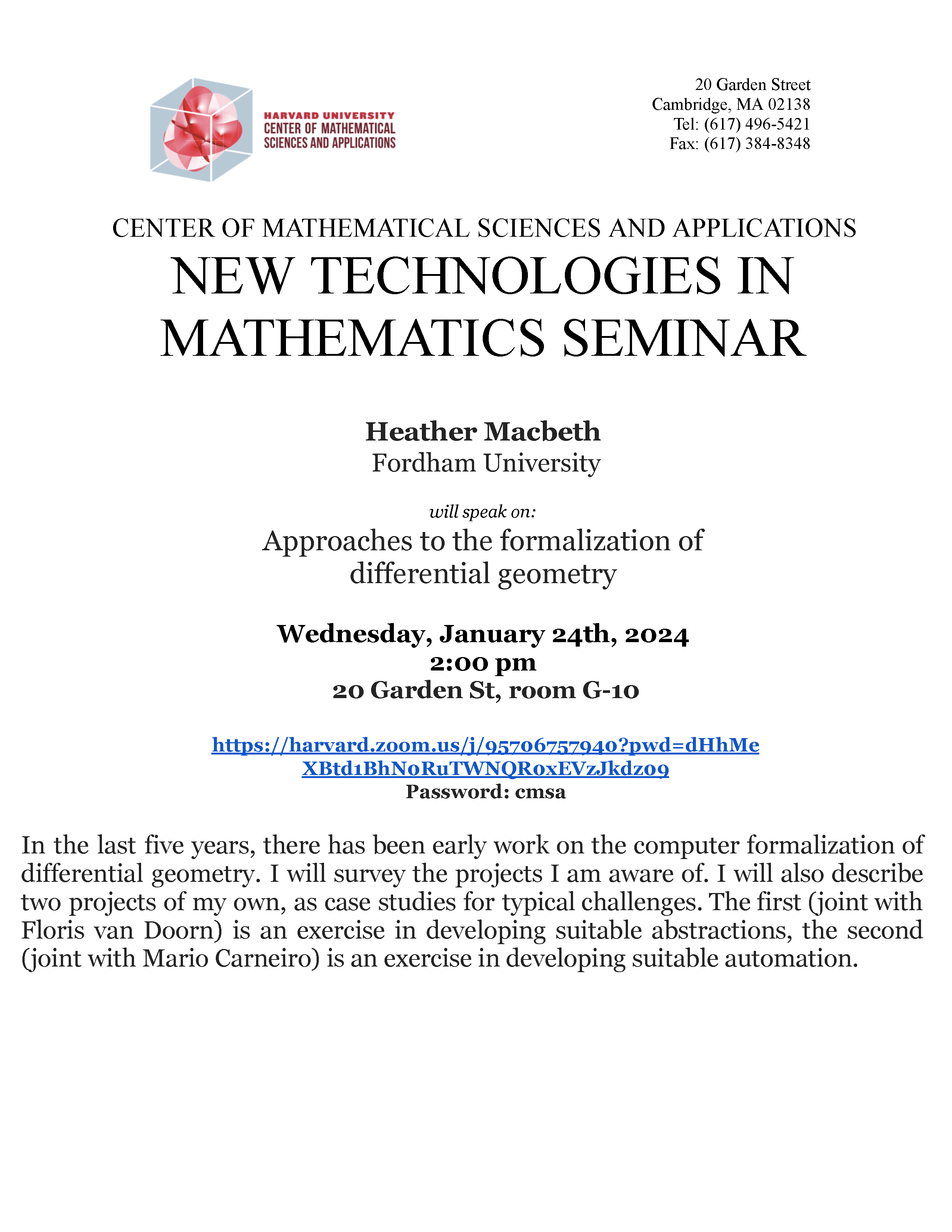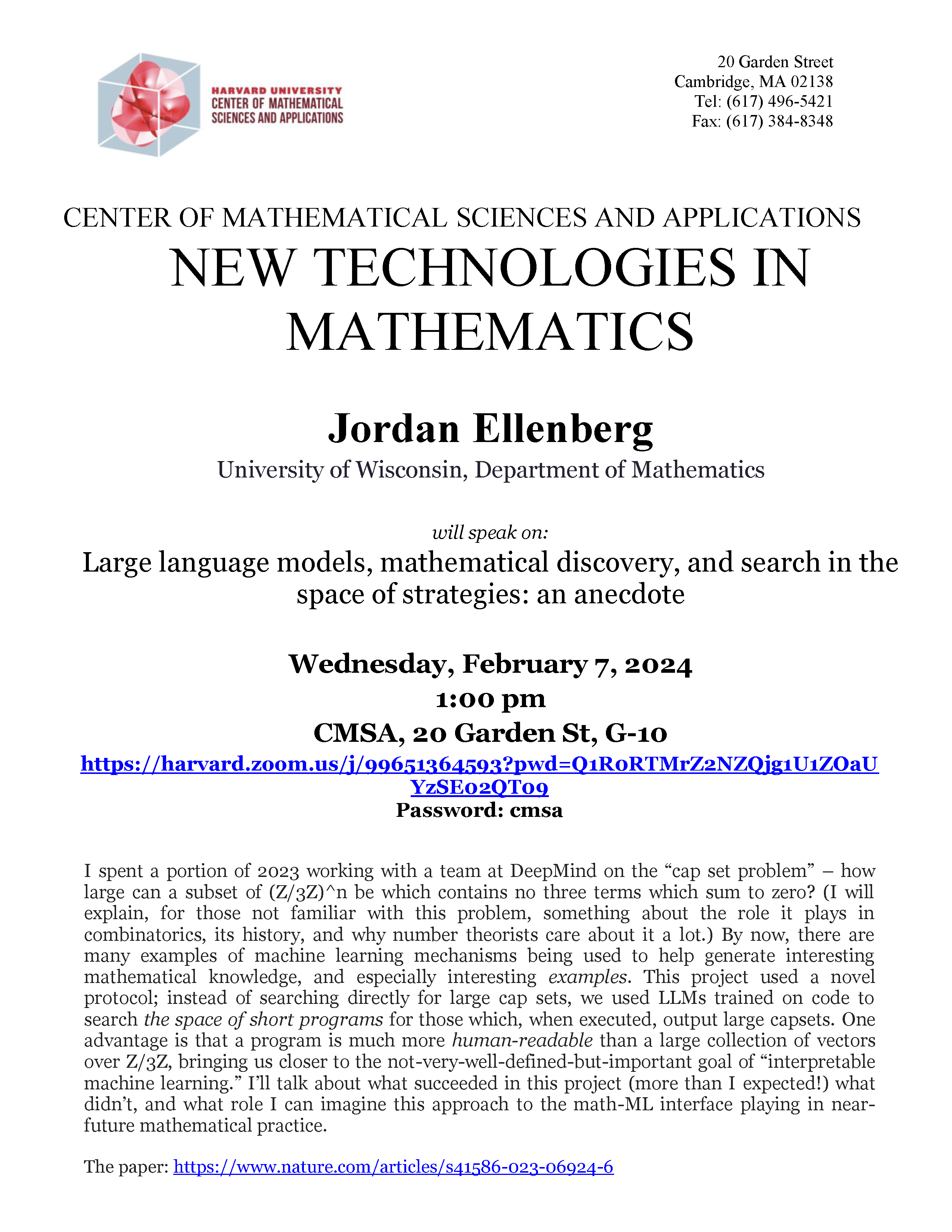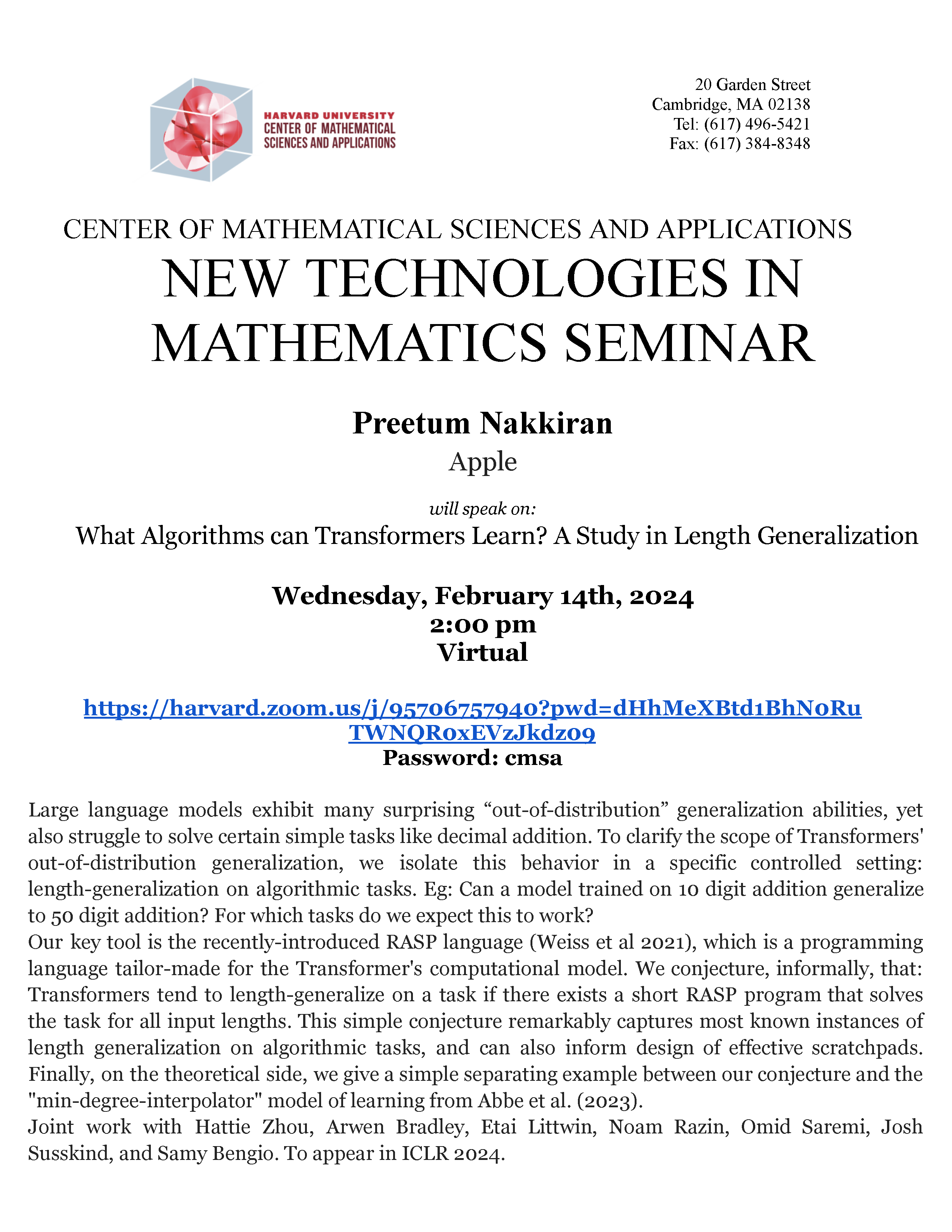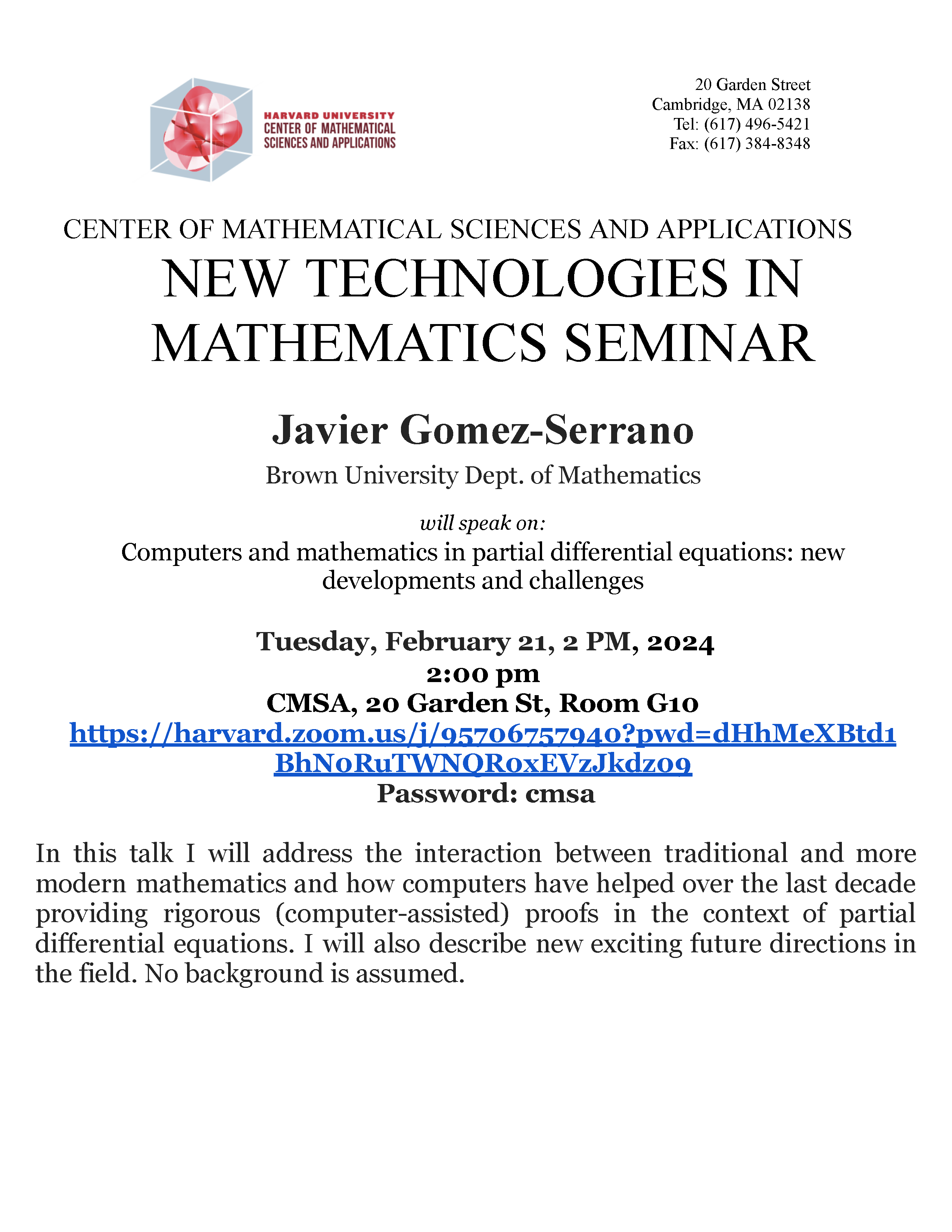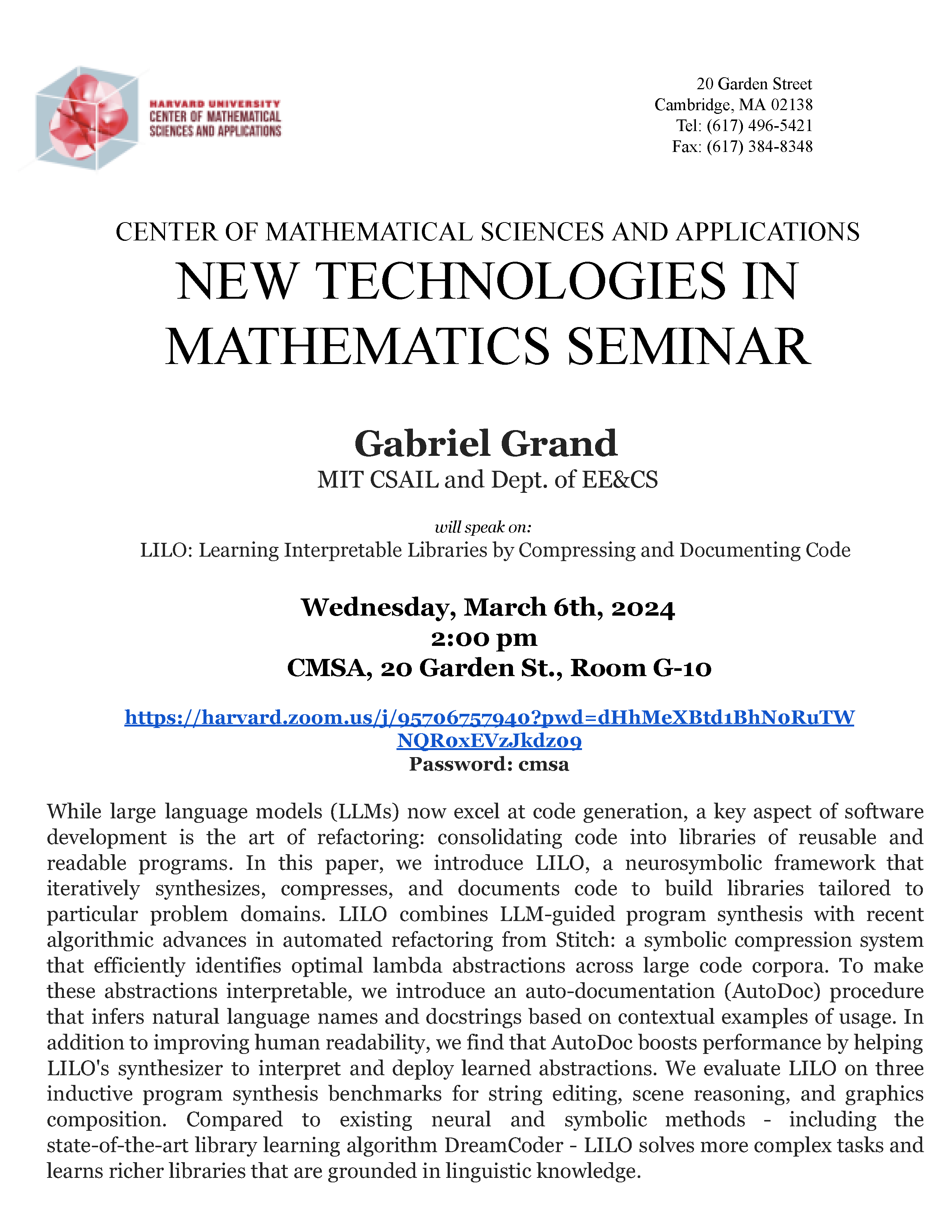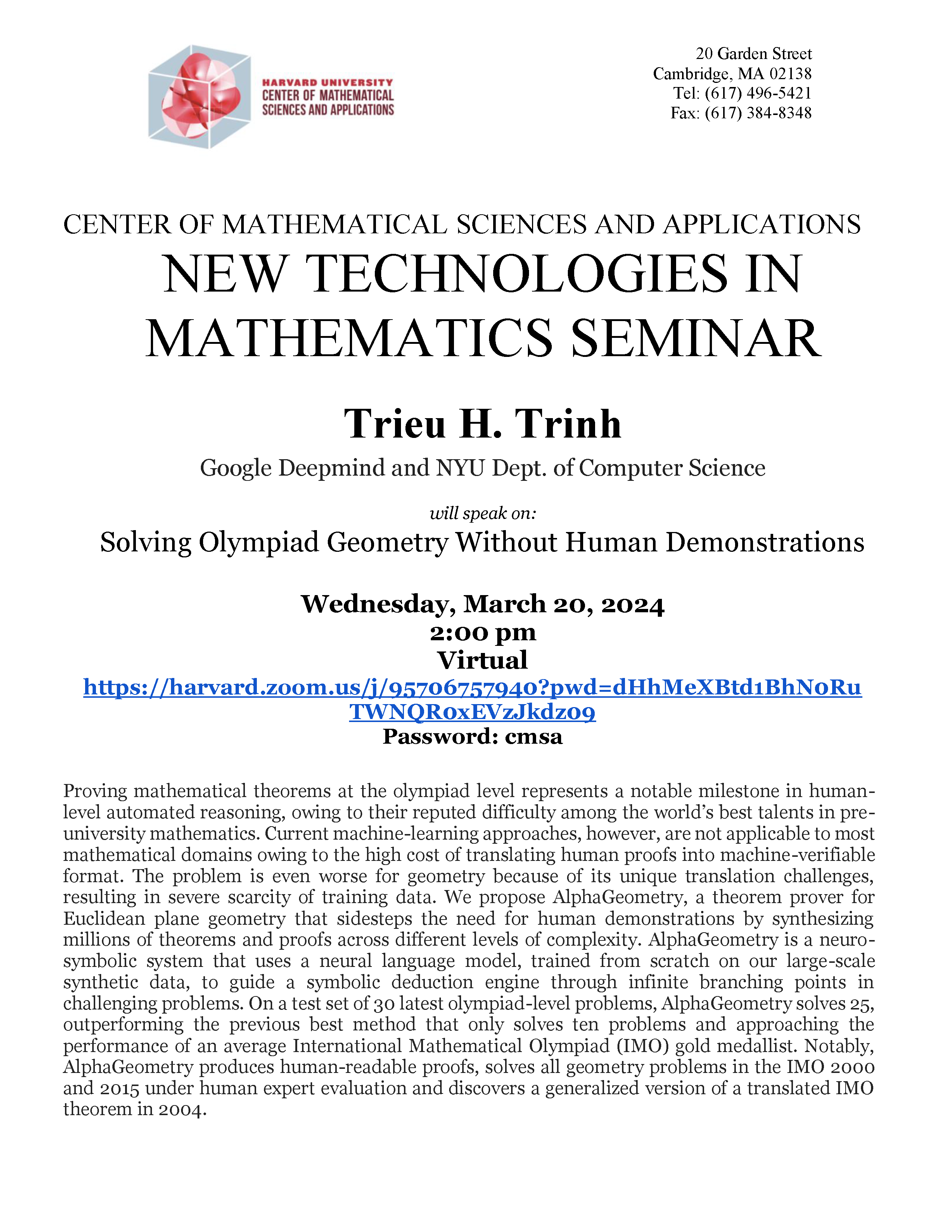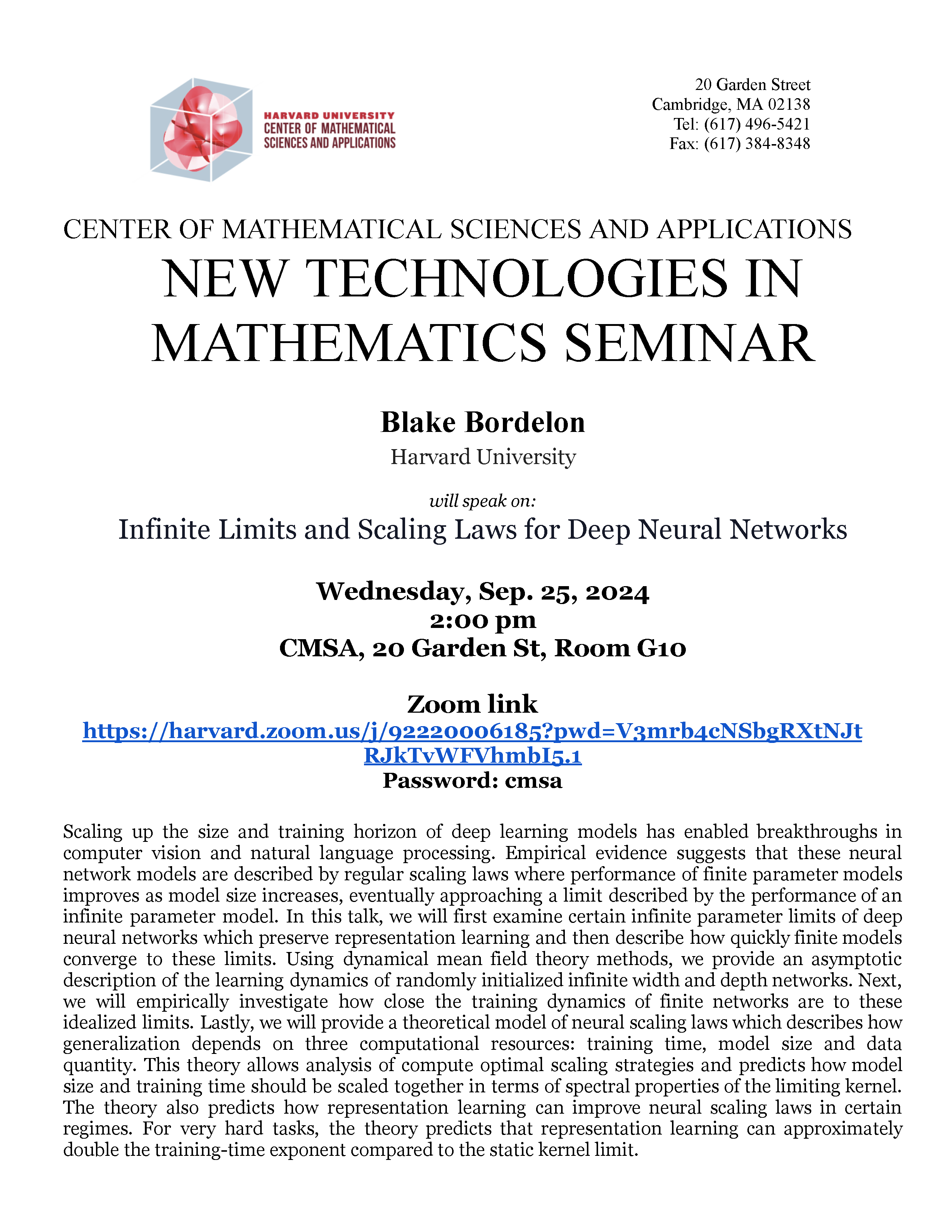Physics of Language Models: Knowledge Storage, Extraction, and Manipulation
CMSA Room G10 CMSA, 20 Garden Street, Cambridge, MA, United Stateshttps://youtu.be/M25cbX5do8Y New Technologies in Mathematics Seminar Speaker: Yuanzhi Li, CMU Dept. of Machine Learning and Microsoft Research Title: Physics of Language Models: Knowledge Storage, Extraction, and Manipulation Abstract: Large language models (LLMs) can memorize a massive amount of knowledge during pre-training, but can they effectively use this knowledge at inference time? In this work, we show several striking […]

